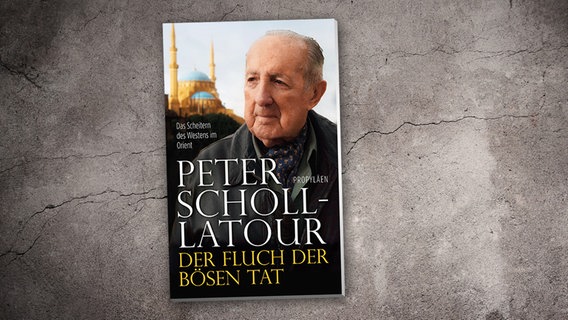Erfolgreiche Programmbeschwerde wegen des Inhalts der 8-Uhr-Nachrichten am
30.10.2014 zum Thema „NATO: Ungewöhnlich viele russische Luftmanöver”
Beim Intendanten, Herrn Dr. Willi Steul, des „Deutschlandradio“
Sehr geehrter Herr Intendant Dr. Steul,
wegen der „Berichterstattung“ des Journalisten Rolf Clement erheben wir Programm- beschwerde gem. § 15 des "STAATSVERTRAG über die Körperschaft des öffentlichen Rechts "Deutschlandradio" da die Berichterstattung deutlich gegen die Be- stimmungen der §§ 6 und 7 des vorgenannten Vertrages verstoßen, weil Herr Clement in dieser Sendung
Sehr geehrter Herr Intendant Dr. Steul,
wegen der „Berichterstattung“ des Journalisten Rolf Clement erheben wir Programm- beschwerde gem. § 15 des "STAATSVERTRAG über die Körperschaft des öffentlichen Rechts "Deutschlandradio" da die Berichterstattung deutlich gegen die Be- stimmungen der §§ 6 und 7 des vorgenannten Vertrages verstoßen, weil Herr Clement in dieser Sendung
-
keinen objektiven Überblick über das berichtete Geschehen gegeben hat und
nur einseitig berichtet wird,
-
der Inhalt des zur Veröffentlichung bestimmten Berichts keiner sorgfältigen
Prüfung unterzogen wurde,
-
Nachrichten und Kommentare nicht getrennt wurden und
-
Kommentare nicht als persönliche Stellungnahmen gekennzeichnet sind.
Herr Clement behauptete: „28 russische Kampfflugzeuge haben gestern und vorges- tern den Luftraum europäischer Staaten verletzt. Eine solche umfangreiche Verlet- zung sprengt alles, was die NATO bisher erlebt hat.“
Die Aussage der Verletzung des „Luftraum europäischer Staaten“ ist irreführend, da in der Sendung vorher behauptet wurde, dass die NATO betonte, der Luftraum des Verteidigungsbündnisses sei nicht verletzt worden.
Herr Clement behauptete weiter:
„Der spektakulärste Fall war der Flug von acht Kampfflugzeugen der Russen gestern Nachmittag über der Nordsee. Sie wurden von vier Tankflugzeugen begleitet,
eindeutiges Indiz dafür, dass es kein Versehen, sondern geplante Absicht war“
und
„Die Reise von zwei Flugzeugen ging bis in den Luftraum westlich von Portugal. Die Flugzeuge drehten dann über eine Route westlich von Großbritannien nach Russland zurück ab. Norwegische und britische Abfangjäger haben sie begleitet und letztlich wieder nach Russland abgedrängt.“
„Die Reise von zwei Flugzeugen ging bis in den Luftraum westlich von Portugal. Die Flugzeuge drehten dann über eine Route westlich von Großbritannien nach Russland zurück ab. Norwegische und britische Abfangjäger haben sie begleitet und letztlich wieder nach Russland abgedrängt.“
Auch Herr Clement sollte wissen, dass der internationale Luftraum allen Saaten offen
steht. Wenn die Flugzeuge der NATO im internationalen Luftraum Russische Flugzeuge abgedrängt haben, haben sie gegen Internationales Recht verstoßen. Das
hätte Herr Clement wissen und auch berichten müssen.
14.11.2014
Herr Clement musste bei seiner Aussage „ebenfalls gestern flogen sieben russische
Kampfflugzeuge in den Luftraum der baltischen Staaten. Dort hatten gerade portugiesische Abfangjäger der NATO Dienst und haben sie entsprechend begleitet“, wissen, dass es den Luftraum der baltischen Staaten als Sammelbegriff nicht gibt, sondern nur die nationalen Lufträume Litauens, Lettlands bzw. Estlands und dass diese
Staaten keinen Protest wegen einer Luftraumverletzung erhoben haben. Auch diese
Tatsache gehört zu einer objektiven Berichterstattung.
Die weiteren Behauptungen
Die weiteren Behauptungen
•
•
•
„über dem Schwarzen Meer wurden vier russische Kampfflugzeuge registriert“,
vorgestern waren sieben russische Kampfflugzeuge über der Baltischen See aufgetaucht“ und „seit Monaten stellt die NATO fest, dass immer wieder russische Kampfflugzeuge den nordeuropäischen Luftraum verletzen.“ sollen bei den Hörern Angst vor den Russen erzeugen.
vorgestern waren sieben russische Kampfflugzeuge über der Baltischen See aufgetaucht“ und „seit Monaten stellt die NATO fest, dass immer wieder russische Kampfflugzeuge den nordeuropäischen Luftraum verletzen.“ sollen bei den Hörern Angst vor den Russen erzeugen.
Bei der „Baltischen See“, handelt es sich um einen Teil der Ostsee, einem Weltmeer
mit größtenteils internationalem nicht baltischem Luftraum. Nur nationalen Luftraum
kann jemand verletzen. Der nordeuropäische Luftraum ist in nationale Lufträume der
nordeuropäischen Staaten unterteilt. Russlands Nordgrenze bis zum Ural ist ebenfalls nordeuropäisch.
Dass die russischen Flugzeuge keinen Kontakt zur Flugkontrolle der westeuropäischen Staaten aufnehmen ist ständige Übung, da die Luftwaffen der meisten Länder eigene militärische Fluglotsen haben, die sicherstellen, dass es am Himmel nicht zu gefährlichen Begegnungen mit zivilen Maschinen kommt.
Wenn die NATO behauptet, dass die russischen Flugzeuge eine Gefahr für den zivilen Luftverkehr darstellen, so gehören diese Aussagen u. E. zur gefährlichen Kriegshetze gegen die Russische Föderation.
Als gefährliche Hetze gegen die Russiche Föderation betrachten wir die Behauptung, „dass man sich das nicht mehr lange gefallen lassen wird. Es ist eine eindeutige Belastung des Verhältnisses zwischen der NATO und Russland und eine Eskalation der gegenwärtigen Sicherheitslage in Europa.“
Herr Clement betreibt damit die verbale Eskalation der Sicherheitslage. Seiner Betrachtung der Situation ist zu entnehmen, dass er offenbar die Zeit gekommen sieht, dass die NATO russische Flugzeuge im internationalen Luftraum abschießt und eine Flugverbotszone unmittelbar an der russischen Grenze errichtet, bewacht von der US-Air-Force und ihren „Verbündeten“.
Gemäß § 21 der Satzung und Ziff. 1 der Beschwerdeordnung bitten wir Sie, unsere Programmbeschwerde innerhalb einer Frist von 4 Wochen zu bescheiden.
Im Falle der Ablehnung, bitten wir Sie, die Beschwerde unverzüglich an den Hörfunkrat zur Bearbeitung weiterzuleiten.
Mit freundlichen Grüßen Gert Julius, Präsident
Dass die russischen Flugzeuge keinen Kontakt zur Flugkontrolle der westeuropäischen Staaten aufnehmen ist ständige Übung, da die Luftwaffen der meisten Länder eigene militärische Fluglotsen haben, die sicherstellen, dass es am Himmel nicht zu gefährlichen Begegnungen mit zivilen Maschinen kommt.
Wenn die NATO behauptet, dass die russischen Flugzeuge eine Gefahr für den zivilen Luftverkehr darstellen, so gehören diese Aussagen u. E. zur gefährlichen Kriegshetze gegen die Russische Föderation.
Als gefährliche Hetze gegen die Russiche Föderation betrachten wir die Behauptung, „dass man sich das nicht mehr lange gefallen lassen wird. Es ist eine eindeutige Belastung des Verhältnisses zwischen der NATO und Russland und eine Eskalation der gegenwärtigen Sicherheitslage in Europa.“
Herr Clement betreibt damit die verbale Eskalation der Sicherheitslage. Seiner Betrachtung der Situation ist zu entnehmen, dass er offenbar die Zeit gekommen sieht, dass die NATO russische Flugzeuge im internationalen Luftraum abschießt und eine Flugverbotszone unmittelbar an der russischen Grenze errichtet, bewacht von der US-Air-Force und ihren „Verbündeten“.
Gemäß § 21 der Satzung und Ziff. 1 der Beschwerdeordnung bitten wir Sie, unsere Programmbeschwerde innerhalb einer Frist von 4 Wochen zu bescheiden.
Im Falle der Ablehnung, bitten wir Sie, die Beschwerde unverzüglich an den Hörfunkrat zur Bearbeitung weiterzuleiten.
Mit freundlichen Grüßen Gert Julius, Präsident
Schreiben des Intendanten des Deutschlandradio auf unsere vorstehende
Programmbeschwerde vom 2. November 2014
Sehr geehrter Herr Julius,
vielen Dank für Ihr kritisches Schreiben.
Als Intendant von Deutschlandradio gehört es zu meinen wichtigsten Aufgaben, die journalistische Qualität unserer drei Programme - Journalismus auf allerhöchstem Niveau - zu garantieren.
Ich weiß, dass die Kolleginnen und Kollegen sich diesem Ziel ebenfalls verpflichtet fühlen und ihr Möglichstes dafür tun, es auch zu erreichen.
In dem von Ihnen - zu Recht - kritisierten Bericht vom 30. Oktober 2014 in den „In- formationen am Morgen" im Deutschlandfunk ist uns dies nicht gelungen. Selbstver- ständlich habe ich unverzüglich um Aufklärung gebeten.
Seien Sie versichert, dass es den Kollegen Rolf Clement am meisten schmerzt, dass er sich im vorliegenden Fall wahrlich nicht korrekt ausgedrückt hat. Was übrigens unmittelbar nach den Sendungen bereits intern auch aufgegriffen wurde. Die Formulierung, es habe sich um „Luftraumverletzungen" gehandelt, war falsch. Dafür entschuldige auch ich mich.
Herr Clement selbst hat bereits die Initiative ergriffen und anderen Hörerinnen und Hörern, welche ebenfalls geschrieben hatten, sein Bedauern darüber zum Ausdruck gebracht.
Rolf Clement hat selbstverständlich nicht bewusst wider besseres Wissen gehandelt Herr Clement ist ein versierter, profunder und sorgfältig recherchierender Kollege. dem diese Fehlleistung allerdings niemals hätte unterlaufen dürfen.
Mit freundlichen Grüßen
Dr. Willi Steul
In Kopie an:
Herrn Frank Schildt, Vorsitzender des Hörfunkrates
Frau Doris Krönig, Vorsitzende des Programmausschusses
Anmerkung der BüSGM-Redaktion
Offensichtlich hat unsere Programmbeschwerde den Intendanten zu einer punktuellen Entschuldigung veranlasst. Dass der Journalist Rolf Clement nicht wider besse- res Wissen gehandelt hat, kann man glauben oder nicht. Seine Schmerzen über seine „nicht korrekte Ausdrucksweise“ werden sich in Grenzen halten. Uns interessiert, in welchem Auftrag Herr Clement in der betreffenden Sendung die Hetze gegen die Russische Föderation betrieben hat.
Leider wird in Fernsehund Rundfunksendungen aus allen Rohren gegen Russland gefeuert, so dass wir nur einzelne Ausschreitungen verfolgen können.
Herausgeber: Bündnis für Soziale Gerechtigkeit und Menschenwürde e.V. Domnauer Str. 14, 12105 Berlin, Tel. 030-75652209, Vorstand: Peter Dietrich. Gert Julius (V.i.S.d.P) Lothar Nätebusch, Bernd Cachandt, Email: buesgm@online.de, Website: www.okv-ev.de Mitglied im Ostdeutschen Kuratorium von Verbänden und
im Antifaschistischen Komitee gegen Krieg und SozialraubSpendenkonto BüSGM IBAN DE21100205000001153 400 – BIC BFSWDE33BER (Bank für Sozialwirtschaft)
Sehr geehrter Herr Julius,
vielen Dank für Ihr kritisches Schreiben.
Als Intendant von Deutschlandradio gehört es zu meinen wichtigsten Aufgaben, die journalistische Qualität unserer drei Programme - Journalismus auf allerhöchstem Niveau - zu garantieren.
Ich weiß, dass die Kolleginnen und Kollegen sich diesem Ziel ebenfalls verpflichtet fühlen und ihr Möglichstes dafür tun, es auch zu erreichen.
In dem von Ihnen - zu Recht - kritisierten Bericht vom 30. Oktober 2014 in den „In- formationen am Morgen" im Deutschlandfunk ist uns dies nicht gelungen. Selbstver- ständlich habe ich unverzüglich um Aufklärung gebeten.
Seien Sie versichert, dass es den Kollegen Rolf Clement am meisten schmerzt, dass er sich im vorliegenden Fall wahrlich nicht korrekt ausgedrückt hat. Was übrigens unmittelbar nach den Sendungen bereits intern auch aufgegriffen wurde. Die Formulierung, es habe sich um „Luftraumverletzungen" gehandelt, war falsch. Dafür entschuldige auch ich mich.
Herr Clement selbst hat bereits die Initiative ergriffen und anderen Hörerinnen und Hörern, welche ebenfalls geschrieben hatten, sein Bedauern darüber zum Ausdruck gebracht.
Rolf Clement hat selbstverständlich nicht bewusst wider besseres Wissen gehandelt Herr Clement ist ein versierter, profunder und sorgfältig recherchierender Kollege. dem diese Fehlleistung allerdings niemals hätte unterlaufen dürfen.
Mit freundlichen Grüßen
Dr. Willi Steul
In Kopie an:
Herrn Frank Schildt, Vorsitzender des Hörfunkrates
Frau Doris Krönig, Vorsitzende des Programmausschusses
Anmerkung der BüSGM-Redaktion
Offensichtlich hat unsere Programmbeschwerde den Intendanten zu einer punktuellen Entschuldigung veranlasst. Dass der Journalist Rolf Clement nicht wider besse- res Wissen gehandelt hat, kann man glauben oder nicht. Seine Schmerzen über seine „nicht korrekte Ausdrucksweise“ werden sich in Grenzen halten. Uns interessiert, in welchem Auftrag Herr Clement in der betreffenden Sendung die Hetze gegen die Russische Föderation betrieben hat.
Leider wird in Fernsehund Rundfunksendungen aus allen Rohren gegen Russland gefeuert, so dass wir nur einzelne Ausschreitungen verfolgen können.
Herausgeber: Bündnis für Soziale Gerechtigkeit und Menschenwürde e.V. Domnauer Str. 14, 12105 Berlin, Tel. 030-75652209, Vorstand: Peter Dietrich. Gert Julius (V.i.S.d.P) Lothar Nätebusch, Bernd Cachandt, Email: buesgm@online.de, Website: www.okv-ev.de Mitglied im Ostdeutschen Kuratorium von Verbänden und
im Antifaschistischen Komitee gegen Krieg und SozialraubSpendenkonto BüSGM IBAN DE21100205000001153 400 – BIC BFSWDE33BER (Bank für Sozialwirtschaft)

